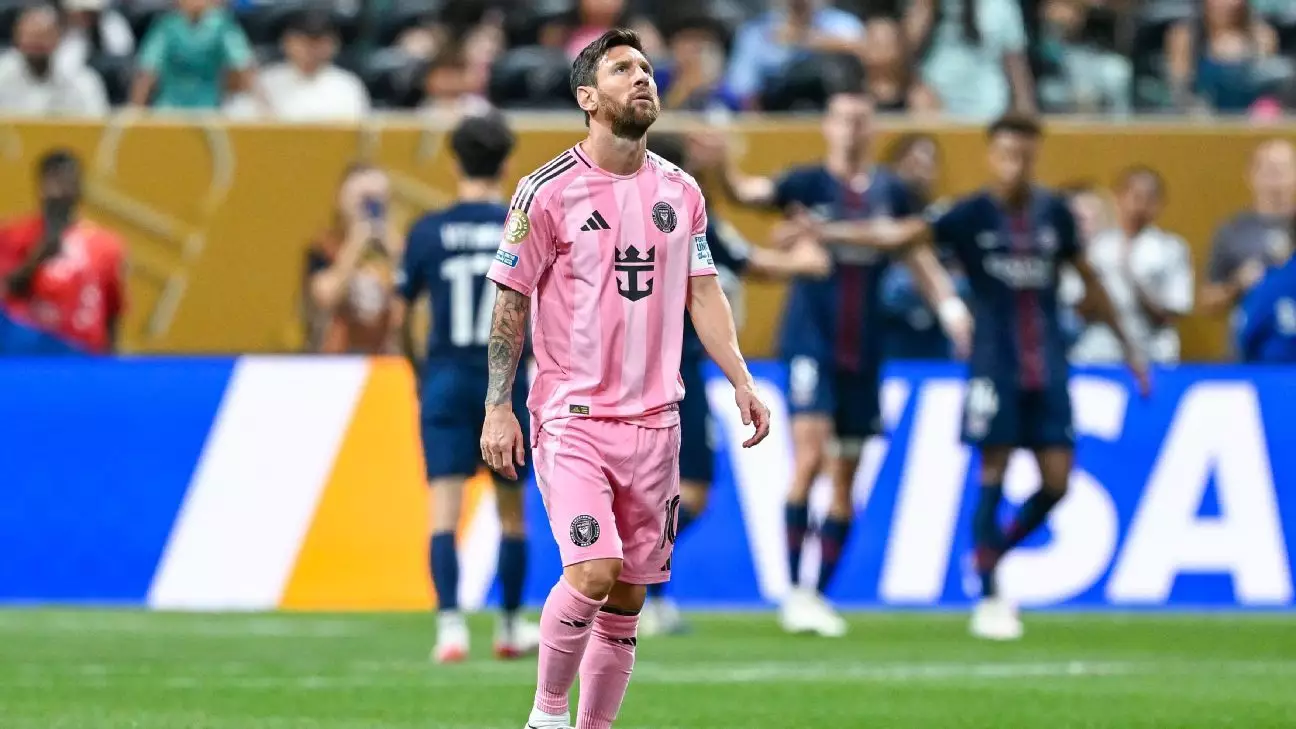The 4-0 loss Inter Miami CF suffered at the hands of Paris Saint-Germain in the Club World Cup was, for many, an anticipated outcome. Yet beneath the decisive victory lies a broader story about the disparity between European football powerhouses and Major League Soccer’s growing, yet still limited, capacities. PSG’s fluidity, tactical discipline, and clinical execution under Luis Enrique underlined sharp contrasts in quality and depth between the reigning UEFA Champions League champions and the ambitious American side.
From the opening moments, PSG pressed aggressively—forcing saves from Inter Miami’s goalkeeper and quickly capitalizing on a free kick assist to open the scoring. Their 19 shots, 9 of which were on target, clearly illustrated a team operating at a level of precision and creativity that the MLS side struggled to match. This was not simply a triumph of talent but also a reaffirmation of structural and developmental gaps that MLS teams must confront if they wish to compete effectively on the global stage.
The MLS Structural Constraints Hamper Competitive Edge
Inter Miami’s trip to the Club World Cup also highlighted systemic hurdles inherent in the MLS framework. Former Inter Miami coach Gerardo Martino and current manager Javier Mascherano both voiced concerns around MLS roster rules and economic restrictions. These regulations often result in teams heavily laden with a few high-profile stars—such as Messi, Luis Suárez, Jordi Alba, and Busquets for Miami—while the remainder of the roster lacks comparable quality or experience, especially against elite international opposition.
Injuries compounded this issue, exposing a shallow bench that could not adequately compensate when key players were sidelined. The transfer system’s cumbersome and narrow windows further frustrate efforts to reinforce squads in crucial moments. These factors combined to leave Miami vulnerable, especially when the game demanded fresh legs and tactical adjustments against a side as relentless as PSG.
Jorge Mas, co-owner of Inter Miami, candidly acknowledged the league’s need for reform toward greater roster flexibility, emphasizing how depth—and not just starting talent—is essential to compete internationally. The lack of impactful substitutions in the face of injuries and exhaustion ultimately weakened Miami’s challenge, demonstrating that MLS must evolve both on the business and sporting sides to bridge these emerging gaps on the world stage.
Inter Miami’s Young Core Faces a Global Awakening
Despite the bruising defeat, Inter Miami’s journey in the tournament was far from discouraging. The club, a mere six seasons old at the time, not only secured qualification by winning MLS’s Supporters’ Shield but also made history as the youngest squad to reach the knockout stage of this prestigious competition.
Moments such as Messi’s goal against Porto and their spirited performances against Brazilian and Egyptian powerhouses gave glimpses of potential. Players like Benjamin Cremaschi, Federico Redondo, Noah Allen, and academy graduate Ian Fray gained invaluable experience by competing against world-class talents in situations they had never faced before. This exposure to a level of play and intensity typical of Champions League and Copa Libertadores winners is an irreplaceable educational milestone, despite the scoreboard.
Jordi Alba’s reflections on playing against PSG capture the challenge succinctly—elite teams demand relentless effort, precision, and tactical acumen. Miami’s young players now have a clearer sense of what the global elite entail, both in terms of preparation and execution. Messi’s arrival has undoubtedly opened doors and inspired growth, but the journey to matching European standards will be incremental and arduous.
Lessons Learned: A Crucial Foundation for MLS’s Future Ambitions
Inter Miami’s experience in the Club World Cup underscores that success on a global platform necessitates more than marquee signings alone. Depth, flexibility, and a robust development pipeline are equally critical. While MLS has made strides, this tournament exposed how far the league must evolve structurally, technically, and competitively.
Advocates for MLS reform have a strong case: to elevate North American clubs on the international front, rules around player acquisitions, contract flexibility, and resource allocation must adapt to global realities. The league’s current designated player rules, roster constraints, and transfer policies often hinder rather than help.
Yet Miami’s participation—and by extension MLS’s—in this elite competition is a meaningful step. It provides necessary lessons and motivations for clubs to think beyond domestic success and prepare for high-stakes contests. This kind of exposure will be a catalyst, driving not just player development but strategic investment and reforms aimed at narrowing the gap with Europe and South America.
While the 4-0 loss might sting in the short term, it offers a critical roadmap that MLS teams must recognize and embrace. Inter Miami’s ability to compete at this level and draw thousands of engaged fans attests to the sport’s promising future in North America. Now, the challenge is capitalizing on these hard-earned insights and continuing to push boundaries—both on and off the pitch—to bring the league to a level where such encounters are not overwhelming, but genuinely competitive battles.

